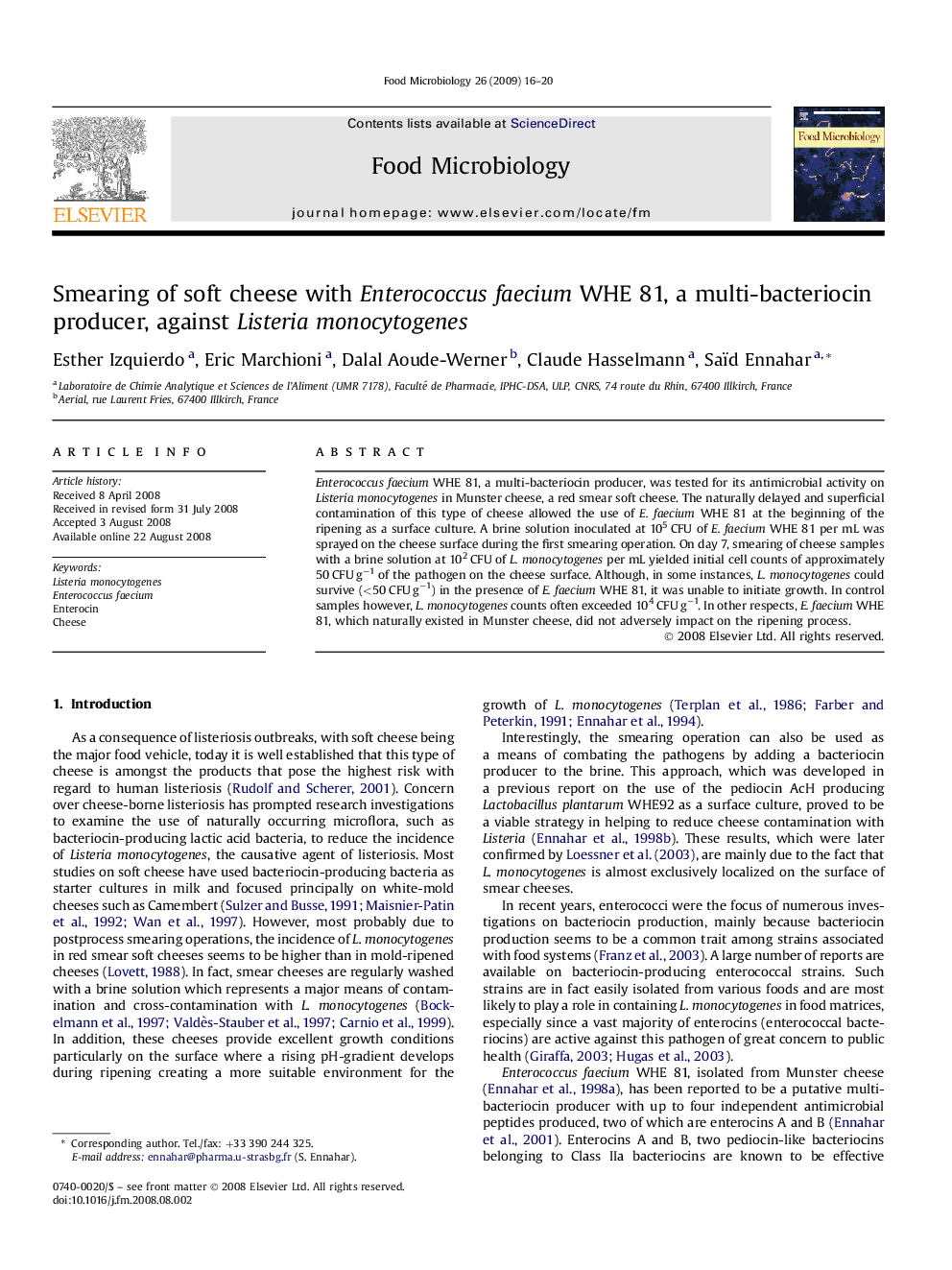| Article ID | Journal | Published Year | Pages | File Type |
|---|---|---|---|---|
| 4363740 | Food Microbiology | 2009 | 5 Pages |
Enterococcus faecium WHE 81, a multi-bacteriocin producer, was tested for its antimicrobial activity on Listeria monocytogenes in Munster cheese, a red smear soft cheese. The naturally delayed and superficial contamination of this type of cheese allowed the use of E. faecium WHE 81 at the beginning of the ripening as a surface culture. A brine solution inoculated at 105 CFU of E. faecium WHE 81 per mL was sprayed on the cheese surface during the first smearing operation. On day 7, smearing of cheese samples with a brine solution at 102 CFU of L. monocytogenes per mL yielded initial cell counts of approximately 50 CFU g−1 of the pathogen on the cheese surface. Although, in some instances, L. monocytogenes could survive (<50 CFU g−1) in the presence of E. faecium WHE 81, it was unable to initiate growth. In control samples however, L. monocytogenes counts often exceeded 104 CFU g−1. In other respects, E. faecium WHE 81, which naturally existed in Munster cheese, did not adversely impact on the ripening process.
